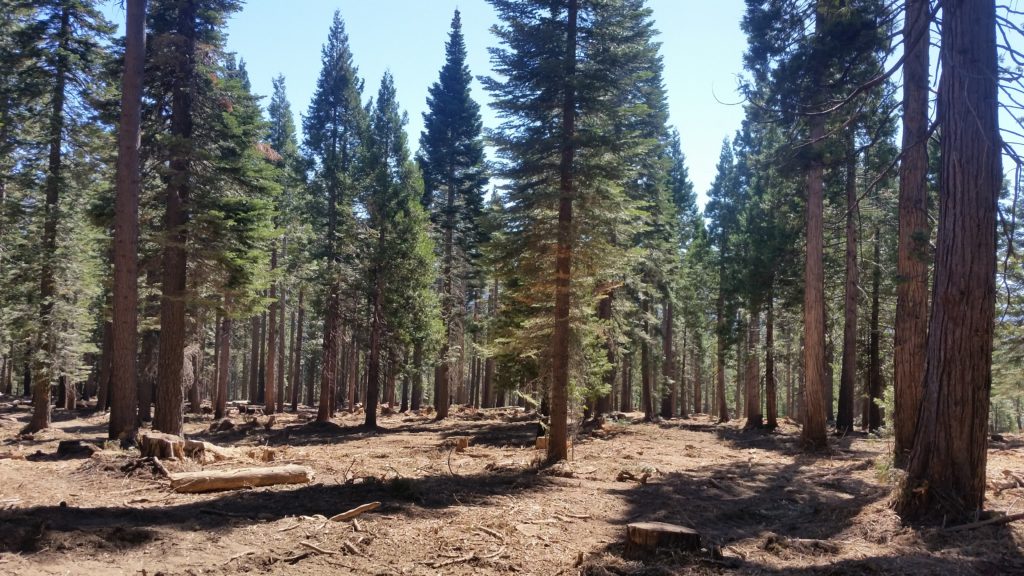Summer 2020 marks the first cohort of CECS project interns!
Over the course of eight weeks, the interns are collaborating on a range of topics to support the CECS research team, including science communication products, data analysis, and more. In this blog post, get to know the interns and learn more about what they’re working on this summer.
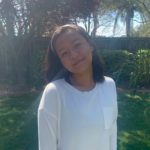 Nicolette Balmaceda
Nicolette Balmaceda
University and graduation year: UC Merced Class of ‘22
Major: Biology with an emphasis in Ecology and Evolution
What are you working on this summer? Who are you working with?
I am working with Toby O’Geen on the science communication team. My focus is on the effects of climate change, drought/heat stress, and tree mortality.
What do you hope to learn or accomplish by the end of your internship?
I hope to become familiar with the impacts that climate change has, why it matters, and the solutions that would benefit our communities in knowing and using to evolve. I also hope to become more comfortable with public speaking about this matter so that I can bring more awareness to it.
Why are natural land management and efforts to combat climate change important to you?
Working to combat climate change is important to me since the impacts can lead to devastating outcomes that directly affect individuals and their loved ones. So, I think it’s important to be aware of the impacts of our everyday actions and ways to adapt for the betterment of others.
What do you like to do in your free time?
When I’m not working, I’m usually either hiking/exercising, reading, or spending time with my family or friends. I also enjoy thrift shopping and discovering eco-friendly tactics that I can apply to my life.
 Adela Contreras
Adela Contreras
University and graduation year: UC Davis Class of ‘20
Major: Environmental Science and Management
What are you working on this summer? Who are you working with?
Throughout this internship I will be working on science communication on the effect of forest management on river water yield and quality, as well as climate-vegetation relationships. I am primarily working with Anthony O’Geen, Soil Resource Specialist in Cooperative Extension, over at UC Davis, and a team of amazing interns.
What do you hope to learn or accomplish by the end of your internship?
I hope to become more competent and effective in sharing my combined passion for science and the outdoors to educate people beyond scientific communities. I also hope to promote policies that protect water supplies and decreases fire risk.
Why are natural land management and efforts to combat climate change important to you?
As a Californian, I know natural land management is vital in mitigating climate change, providing us with food and clean water, offering us places to recreate, and maintaining the lifestyles we currently have.
What do you like to do in your free time?
In my free time, I like to run with my dog Oakley. I also really enjoy kayaking, planning get-togethers with my friends, and learning about soil.
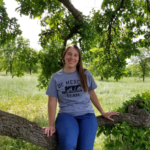 Sarah Downs
Sarah Downs
University and graduation year: UC Merced Class of ‘20
Major: Applied Mathematics
What are you working on this summer? Who are you working with?
I am working on using GEDI data to identify forest disturbances. I am working most directly with Jon Wang and Nicole Hemming-Schroeder as a part of Dr. Jim Randerson’s lab.
What do you hope to learn or accomplish by the end of your internship?
By the end of my internship I hope to learn how I can apply the math skills I have learned as an undergrad to solve problems relating to climate change.
Why are natural land management and efforts to combat climate change important to you?
Growing up I have loved to be able to visit places like Yosemite and Lake Tahoe and experience how beautiful the natural land there is. I want to work on projects relating to climate change that way these lands can continue to be enjoyed by others in the future.
What do you like to do in your free time?
When I am not working, I like to go hiking and exploring different outdoor areas.
 Bryan Flores
Bryan Flores
University and graduation year: UC Davis Class of ‘20
Major: Environmental Science and Management, Minor in Geographic Information Systems (GIS)
What are you working on this summer? Who are you working with?
I’m assisting in the analysis of tree mortality in California’s Sierra Nevada. The end goal is producing high-resolution maps on a spatial and temporal scale showcasing tree mortality locally and regionally in CA.
What do you hope to learn or accomplish by the end of your internship?
I hope to produce deliverables that can inform policy and land management decisions that allow for the continued health of CA’s forests as well as its citizens. As a part of this research at CECS, I am looking to expand my practical experience to better inform my professional, technical, and creative goals in the years to come.
Why are natural land management and efforts to combat climate change important to you?
Climate change and its indirect effects disproportionately affect communities of color, low-income communities, and other historically marginalized populations. My desire to pursue an environmental career is informed by this pursuit of advocacy of these communities.
What do you like to do in your free time?
When I’m not working, I like to stay physically active! I’m an avid skateboarder and enjoy hiking and running. I also engage in creative pursuits like photography, videography, and writing. Catch me watching movies or listening to music in my downtime, too!
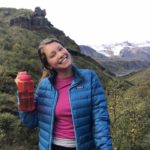 Eden Marish Roehr
Eden Marish Roehr
University and graduation year: UC Davis Class of ‘20
Major: Environmental Policy Analysis and Planning
What are you working on this summer? Who are you working with?
I am exploring and writing about management options to promote climate resilient forests in the Sierra Nevada region. To share these findings with a public audience, I am collaborating with PI Toby O’Geen and my fellow interns to create innovative science communication materials pertaining to climate change, forest health, and wildfire in California.
What do you hope to learn or accomplish by the end of your internship?
I’m excited to learn new ways to effectively communicate complex topics in environmental science to a general public audience through visual, written, and verbal mediums.
Why are natural land management and efforts to combat climate change important to you?
I believe that climate change is the single most pressing challenge we will face in the 21st century. Working to combat climate change is a big undertaking, but I also believe that when we come together to imagine solutions, we are empowered by choosing action over complacency. I care deeply about increasing the resilience of our planet in the face of climate change, and I am beyond grateful to advance this meaningful work with CECS.
What do you like to do in your free time?
I love to hike, read, cook, explore the outdoors, teach yoga, travel, and watch Queer Eye on Netflix! If you haven’t seen it, I would highly recommend (especially if you love a good happy cry).
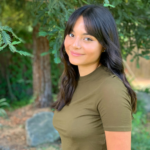 Erica Mendoza
Erica Mendoza
University and graduation year: UC Irvine Class of ‘22
Major: Chemical and Environmental Engineering
What are you working on this summer? Who are you working with?
I am working with Professor Toby O’ Green at UC Davis on science communication. My work is focused on the effects of forest management on carbon sequestration/stocks.
What do you hope to learn or accomplish by the end of your internship?
By the end of my internship, I hope to gain the skills necessary to communicate science to the public to ensue action upon scientific developments. I also look forward to learning from my peers and everyone involved in the project on the importance of forest management.
Why are natural land management and efforts to combat climate change important to you?
The impact of forests fires on California and areas close to my home has also motivated me to seek the opportunities provided by this internship. Combating climate change and preserving the natural beauty of California has become significant to me not only through my studies, but through other aspects of life as a Californian that are important to me.
What do you like to do in your free time?
When I am not working and especially in quarantine, I like to stay active outdoors. Whether it is going for a run or bike around my neighborhood or going on a scenic hike somewhere in California, I like to appreciate the outdoors, especially in this beautiful state I get to call home.
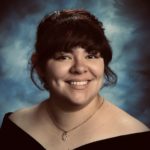 Juana Navarro
Juana Navarro
University and graduation year: UC Merced Class of ‘21
Major: Anthropology
What are you working on this summer? Who are you working with?
I am in the science communications team led by Anthony O’Geen. I am researching California’s communities’ vulnerability to forest fires but specifically focusing on racial minority groups and how/why they are affected.
What do you hope to learn or accomplish by the end of your internship?
I hope through this internship to broaden my science communication skills and apply anthropological thought to a field that normally would not have applied it. Moreover, I hope to learn from others while simultaneously taking part in something that will impact the future of many communities.
Why are natural land management and efforts to combat climate change important to you?
Coming from the social sciences and humanities field, I understand and acknowledge that history, when it comes to climate change, has failed us. I see the importance of combatting climate change in the way it has affected my community and through the way it affects us all in the different aspects of our lives. If we don’t do anything about it now, we will fail future generations and deteriorate this planet. But I trust this generation’s activism and passion for justice to get the job done.
What do you like to do in your free time?
Generally, I love listening to music, but more specifically, I like finding new music. Moments between that, you can catch me listening to the same 10 songs on repeat and scrolling through twitter, trying to stay up to date with all political, social, and environmental issues in the world.
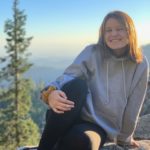 Brooke Penny
Brooke Penny
University and graduation year: UC San Diego Class of ‘22
Major: Ecology, Behavior, and Evolution, Minor in Science Education
What are you working on this summer? Who are you working with?
I’m working with Walter Oechel, Andrea Fenner, Jessica Montes, and Kyle Lunneberg. We’re using data from eddy covariance towers at Sky Oaks Field Station to study the Net Ecosystem Exchange of Chaparral in Arid Ecosystems.
What do you hope to learn or accomplish by the end of your internship?
I hope to gain experience using programs such as R, Google Earth Engine, and QGIS. I am excited to gain experience engaging in Ecology research and learn more about how this research is conducted. Additionally, I hope to learn more about the research being conducted throughout the state to tackle various issues posed by ecosystem changes and climate change.
Why are natural land management and efforts to combat climate change important to you?
Growing up in California, I have seen the ecology and ecosystems within California change vastly as the effects of climate change are growing larger every day. Seeing first-hand the effects and how it can affect a community has made land management and climate change issues very important to me and has further empowered me to work hard within the ecology field to combat climate change.
What do you like to do in your free time?
When I’m not working, I enjoy watching movies, reading, playing beach volleyball, and spending time with my friends and family.
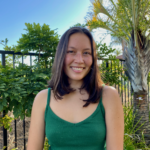 Melissa Thayer
Melissa Thayer
University and graduation year: UC Davis Class of ‘21
Major: Environmental Science, Minor in Political Science
What are you working on this summer? Who are you working with?
I am working on a project in Dr. Michael Goulden’s lab at UCI under Carl Norlen and Cesar Hinojo-Hinojo to track changes in vegetation caused by climate change.
What do you hope to learn or accomplish by the end of your internship?
I hope that I get to learn what really being a researcher is like. I’m not sure what I’d like to do yet, so I hope to have a little more insight on what this field is like by the end of this internship. I’d also like to develop my analytical skills as a scientist through this work.
Why are natural land management and efforts to combat climate change important to you?
We only have one planet and combatting climate change is one of the most important things we can do for it in this moment. As a young person, I’d like to see the world’s nations move toward protecting what we have so newer generations can live beautiful lives out in the world. It is important to appreciate what we have, and the best way we can do that is to make it better.
What do you like to do in your free time?
I enjoy hiking, watercolor, making music, cooking, and hanging out with my friends.
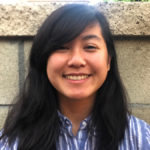 Cassandra Vo
Cassandra Vo
University and graduation year: UC Irvine Class of ‘21
Major: Environmental Science and Policy
What are you working on this summer? Who are you working with?
As part of the UCI cohort, I’m currently working under Dr. Randerson’s lab on a project alongside PhD candidate Shane Coffield and Project Specialist Mahnoor Khan looking at California’s carbon offset projects. Mostly, I’ve been analyzing various datasets from these areas to see if these projects are really achieving what they set out to do.
What do you hope to learn or accomplish by the end of your internship?
Going into this program, I had some—though not much—experience with machine learning and software such as R, Python, Google Earth Engine, and QGIS. Now, it’s something I’ve become accustomed to working with every day; I hope to expand my skills and abilities within these programs and ultimately make my own contribution to the many scientific discussions we see today.
Why are natural land management and efforts to combat climate change important to you?
In light of a variety of compounding environmental issues that have become prominent in recent decades, whatever choices we make to mitigate them now will directly impact all communities, plants, and animals living on our planet today and into the far, far future. By working to enact change, we can ensure a clean, sustainable future for not only the rest of our lives and that of our families, but also for all our generations to come.
What do you like to do in your free time?
More often than not, I tend to relax by playing games (whether by myself or with friends), cooking, drawing, weightlifting, or gardening, though I’ve recently also started picking up the guitar again.
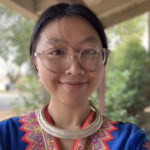 Breanna Xiong
Breanna Xiong
University and graduation year: UC Davis Class of ‘21
Major: Wildlife, Fish, and Conservation Biology
What are you working on this summer? Who are you working with?
The project I am working on with Professor Safeeq Khan at UC Merced focuses on answering the questions of (1) whether biomass reduction through manual treatments, like thinning, can be detected from satellite and (2) if we let natural fires burn, at what burn intensities will the fire mimic manual treatment.
What do you hope to learn or accomplish by the end of your internship?
I hope to have a better understanding of forest and fire conditions in California through the usage of spatial analysis tools such as R, Google Earth Engine, and GIS. More than anything, I want to learn about the overall process in solving these statewide/global issues, who is involved, and how to engage myself in answering these important ecological, environmental, and social questions.
Why are natural land management and efforts to combat climate change important to you?
The environment provides us with food, water, air, beauty, wonder, among many other things. Unfortunately, there are threats and uncertainties concerning the health of our environment. Many individuals, including myself, have an instinctual connection with nature and want to do our best to protect it. Dr. Seuss best summarizes why being a steward of the land is so important, “Unless someone like you cares a whole awful lot, nothing is going to get better. It’s not.”
What do you like to do in your free time?
When I’m not working, I like to video chat with friends and watch shows together. I also like writing fictional stories, practicing music, or reading manga. I haven’t been able to do this recently, but I love going out into nature for walks, hikes, lunch, etc.

